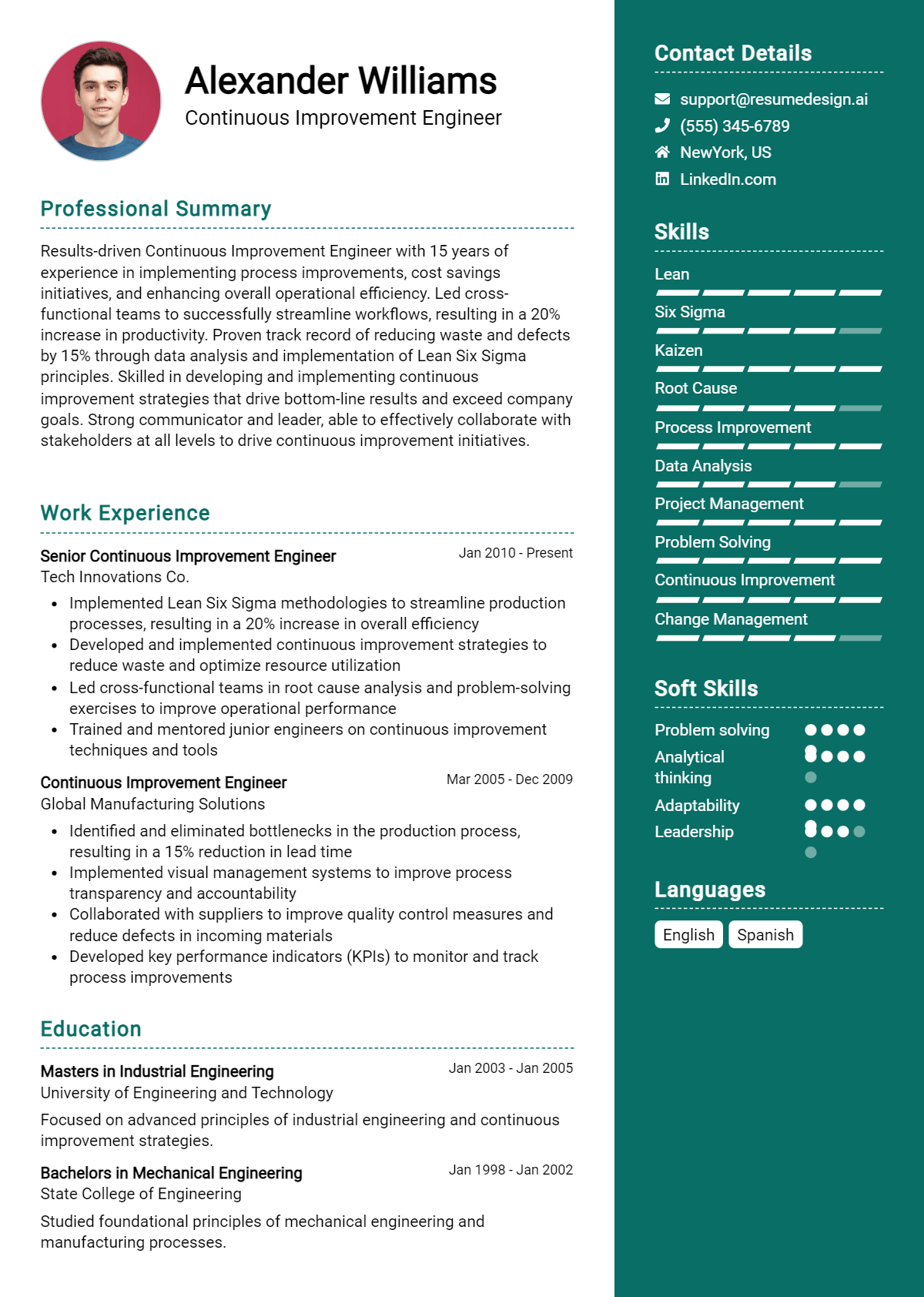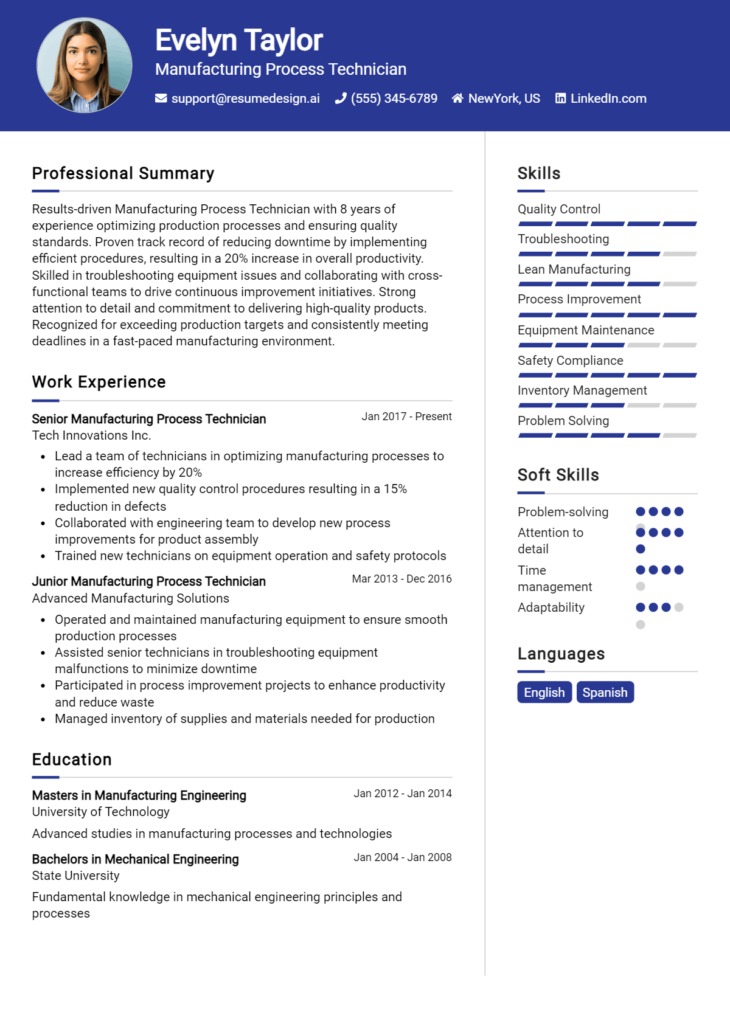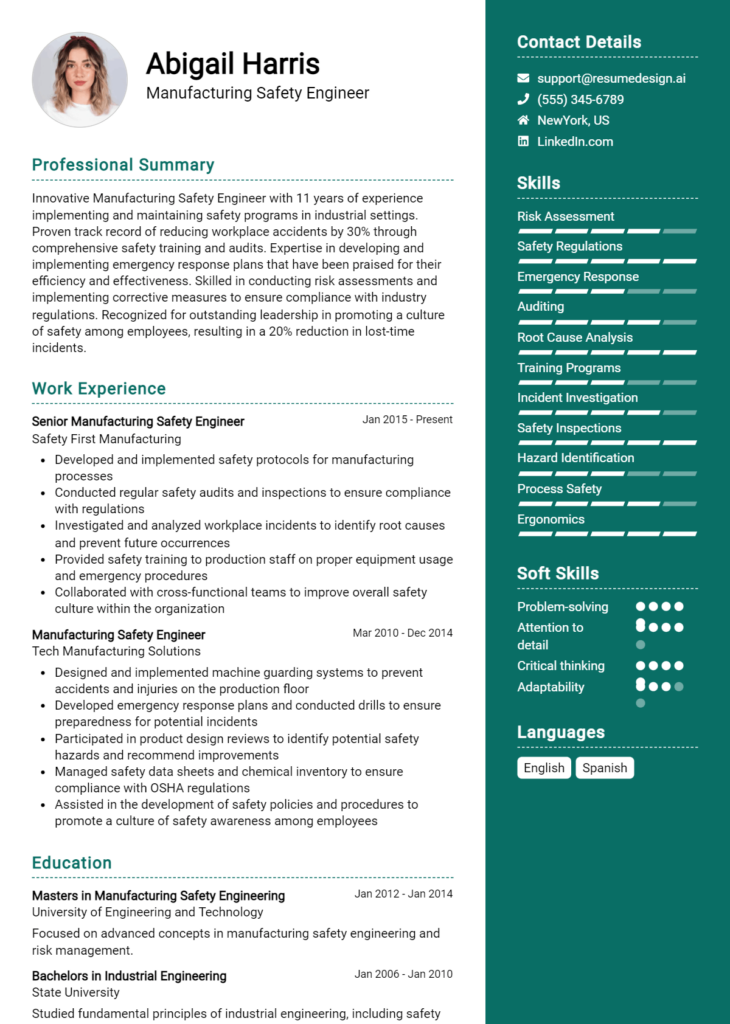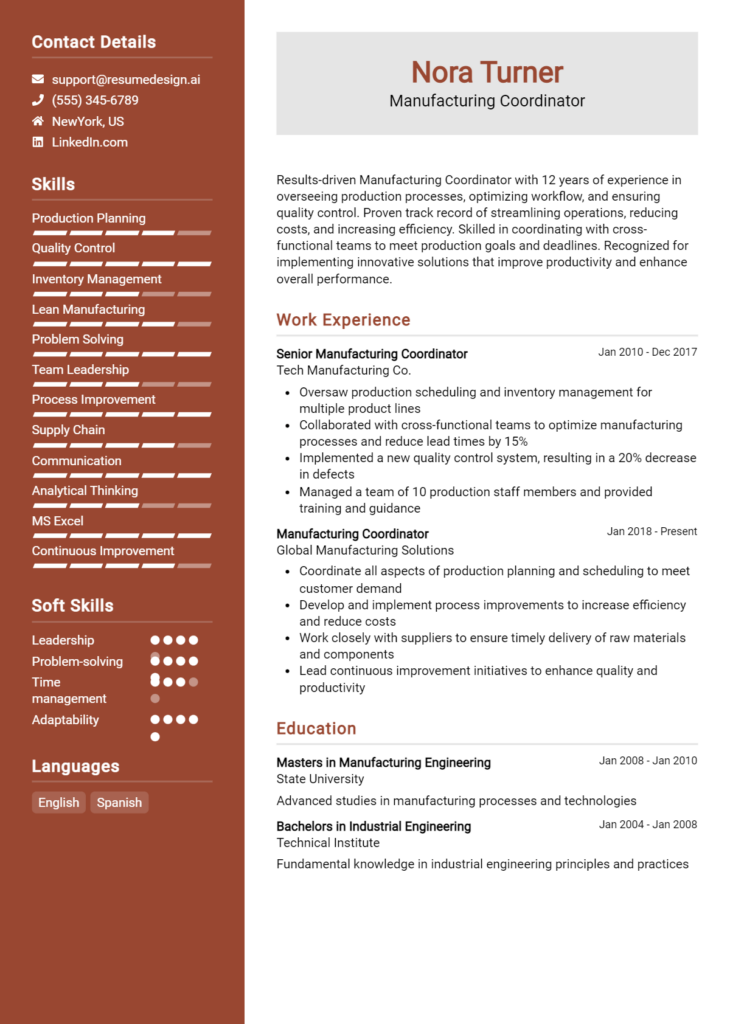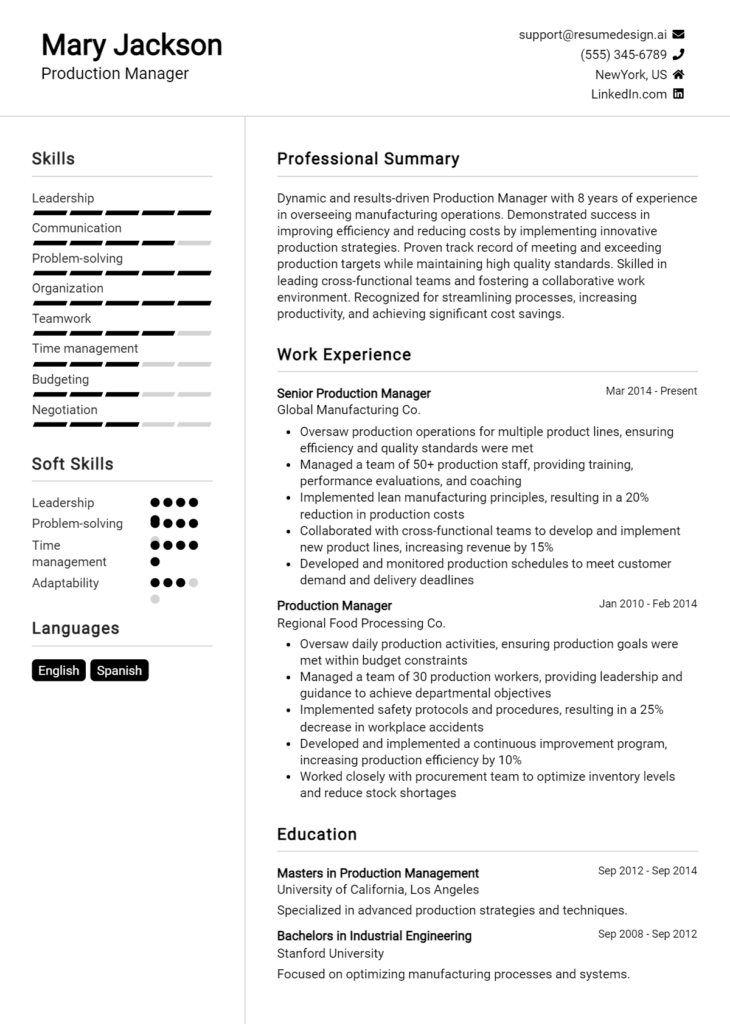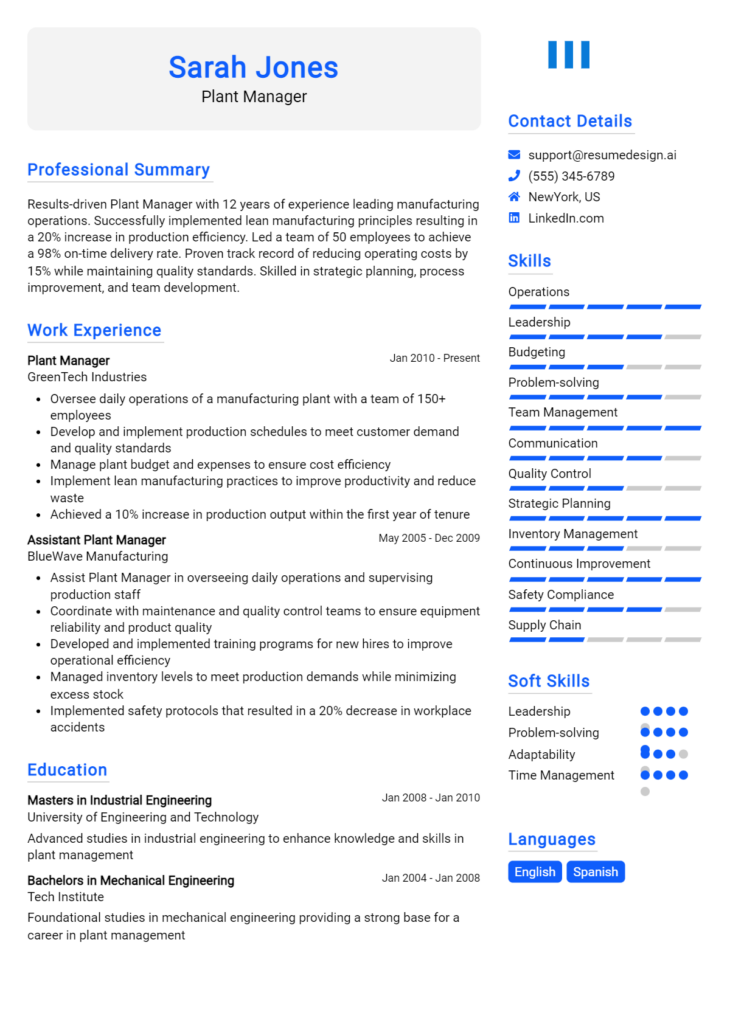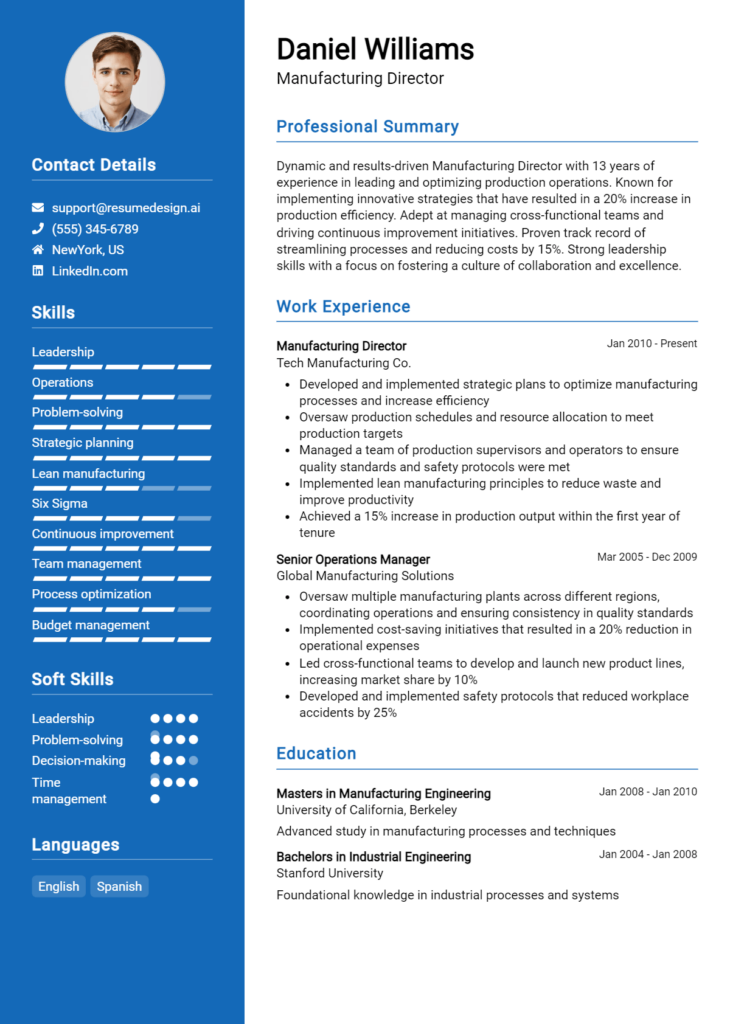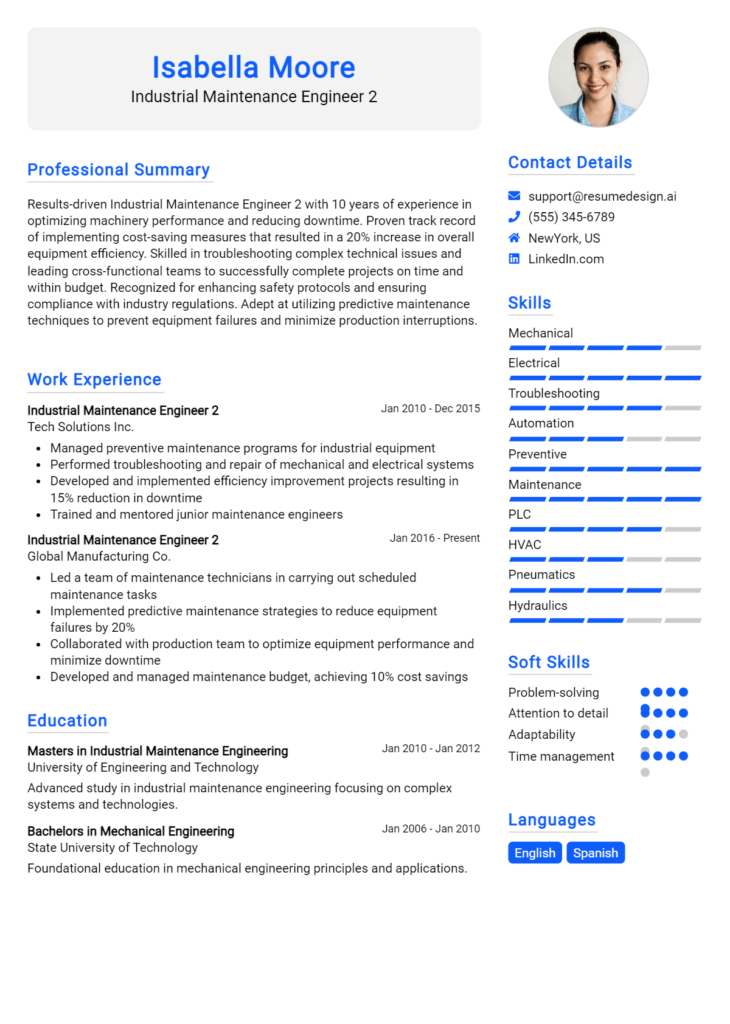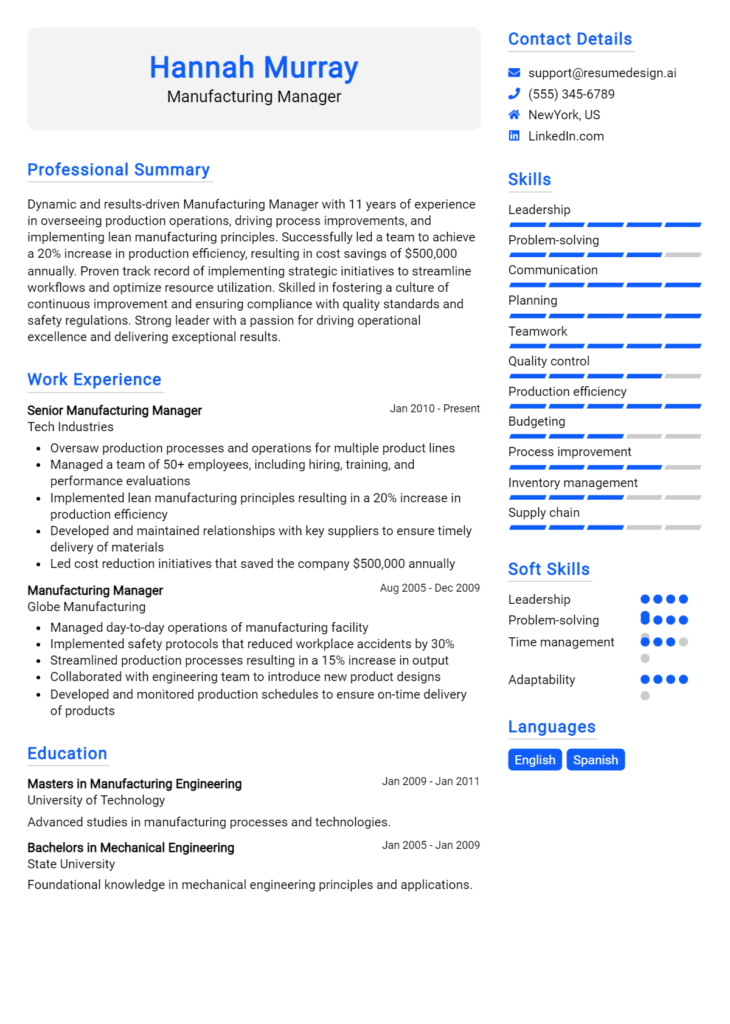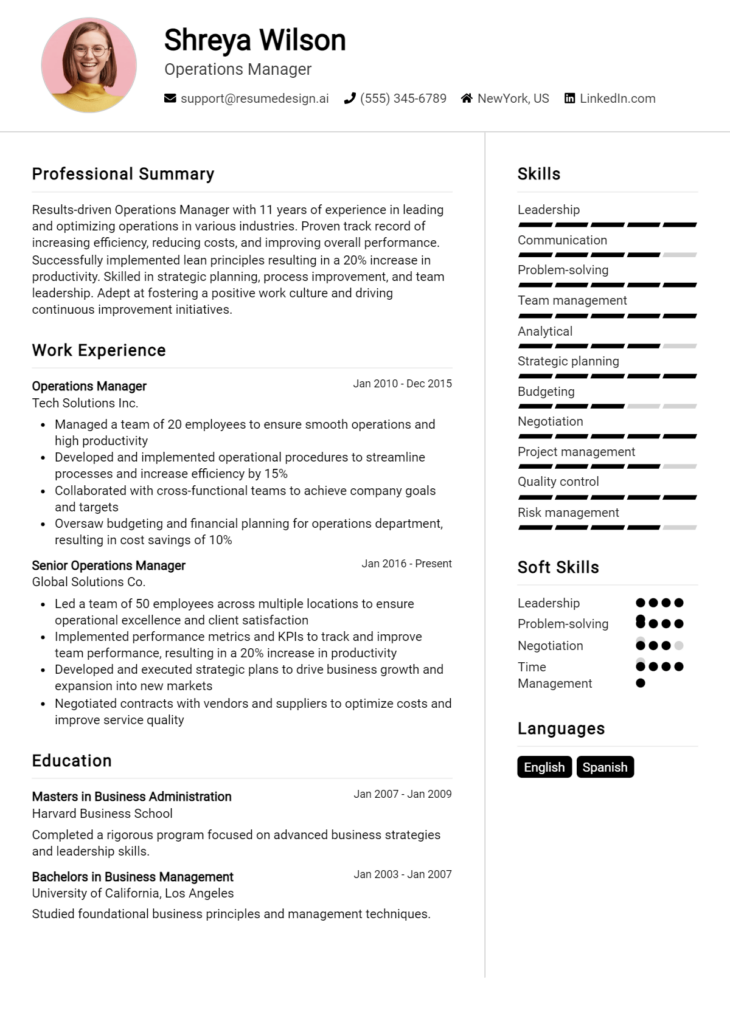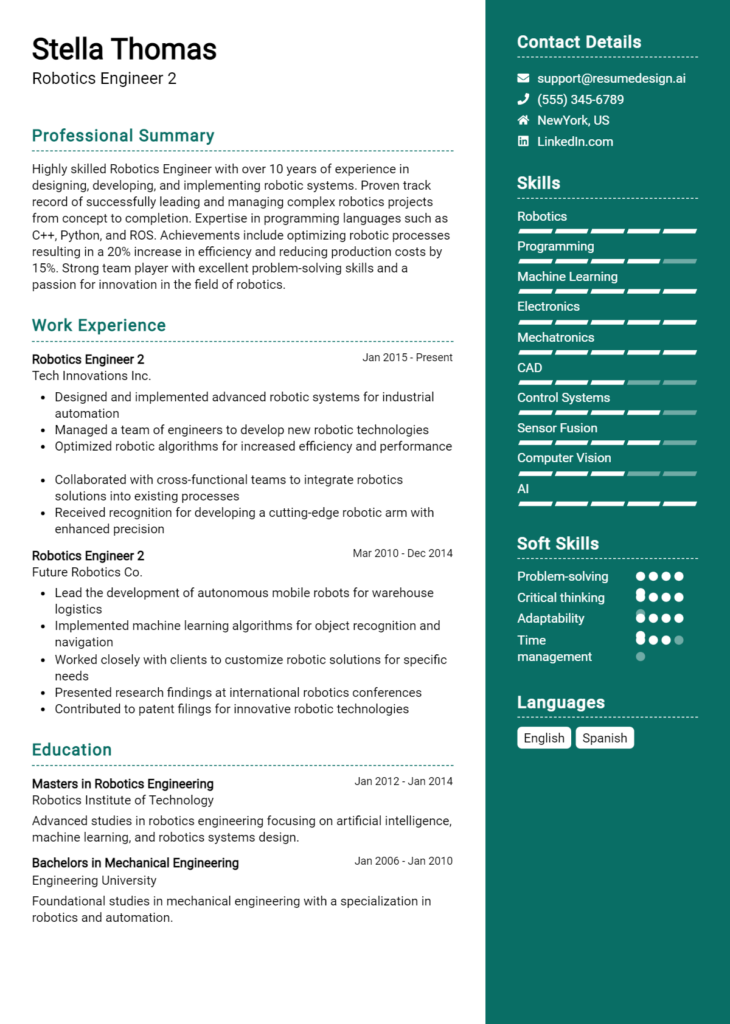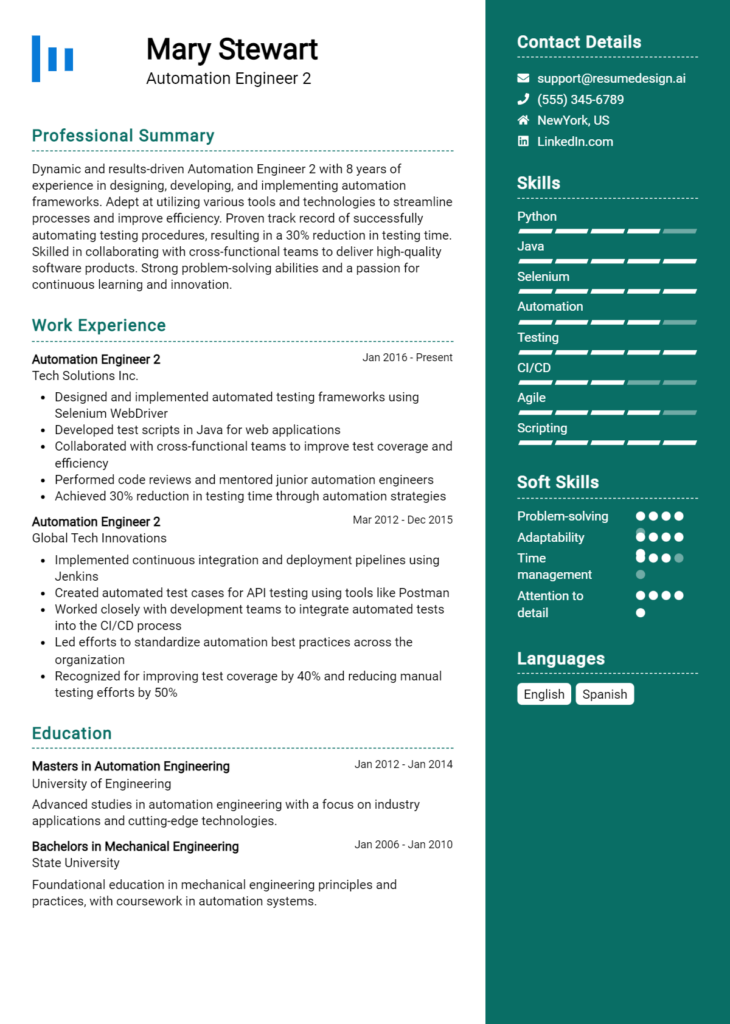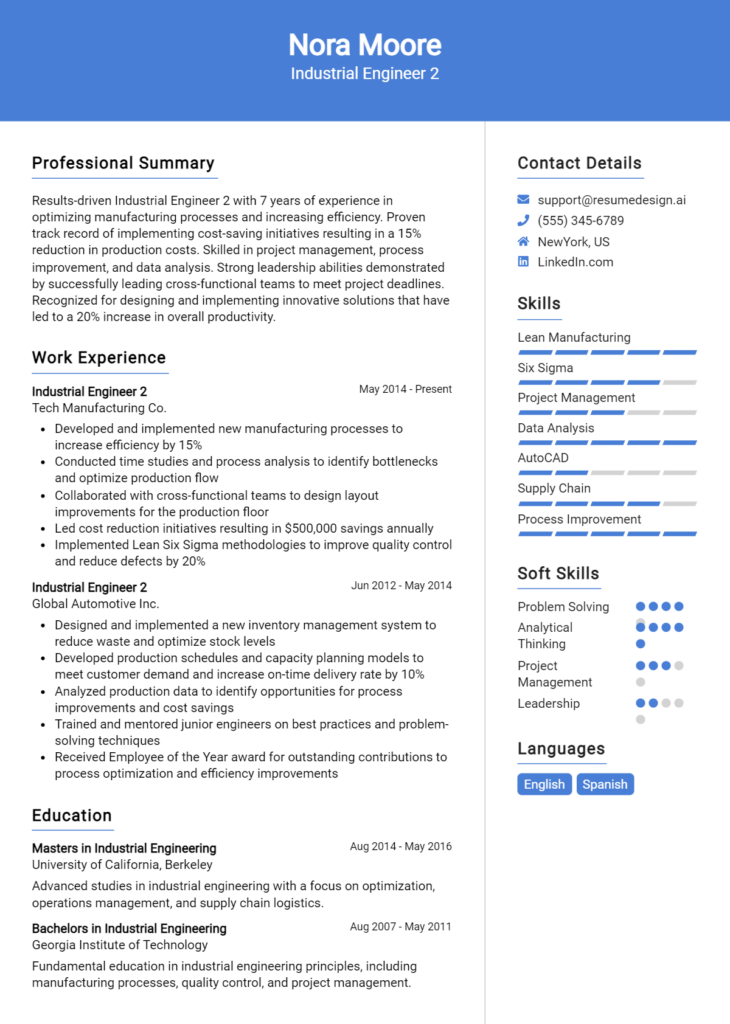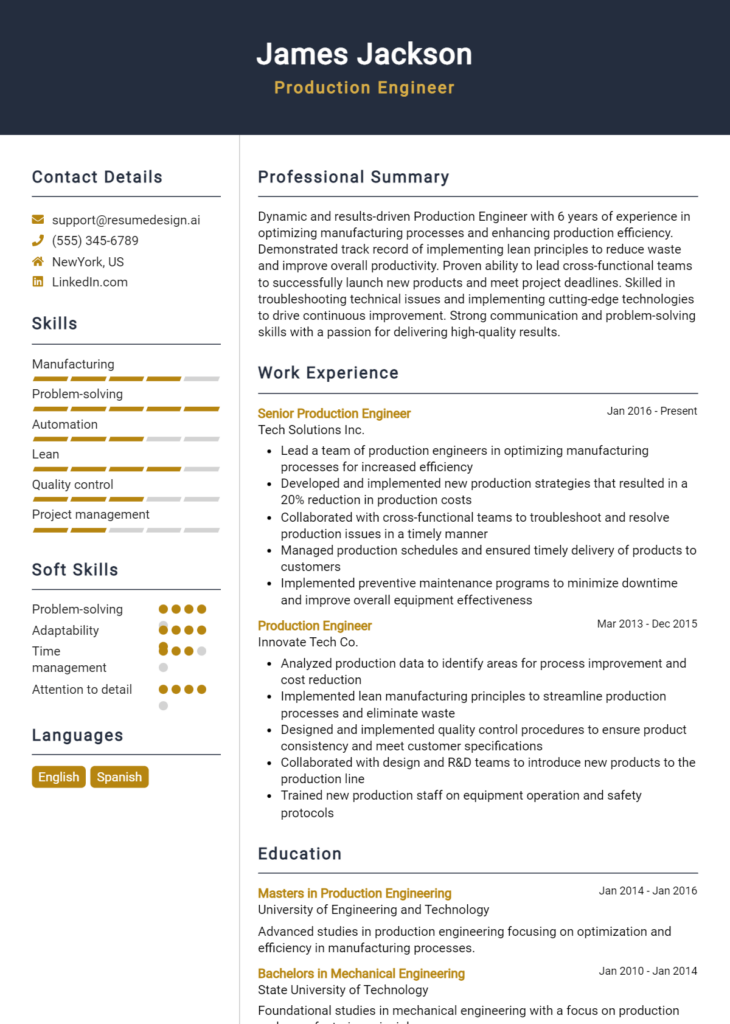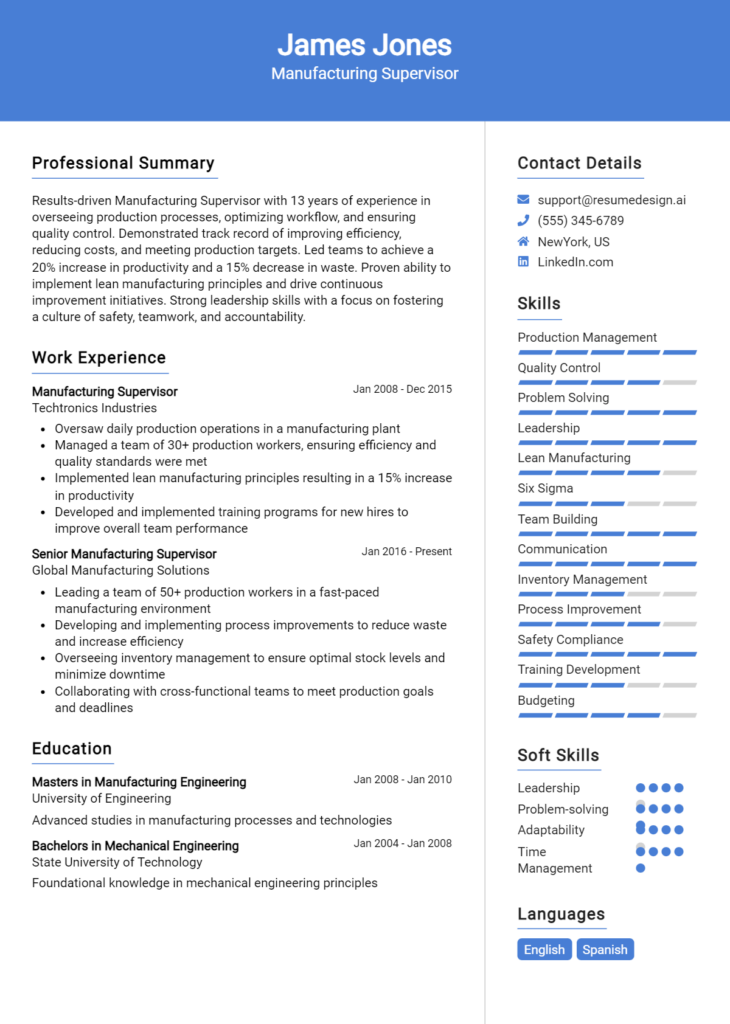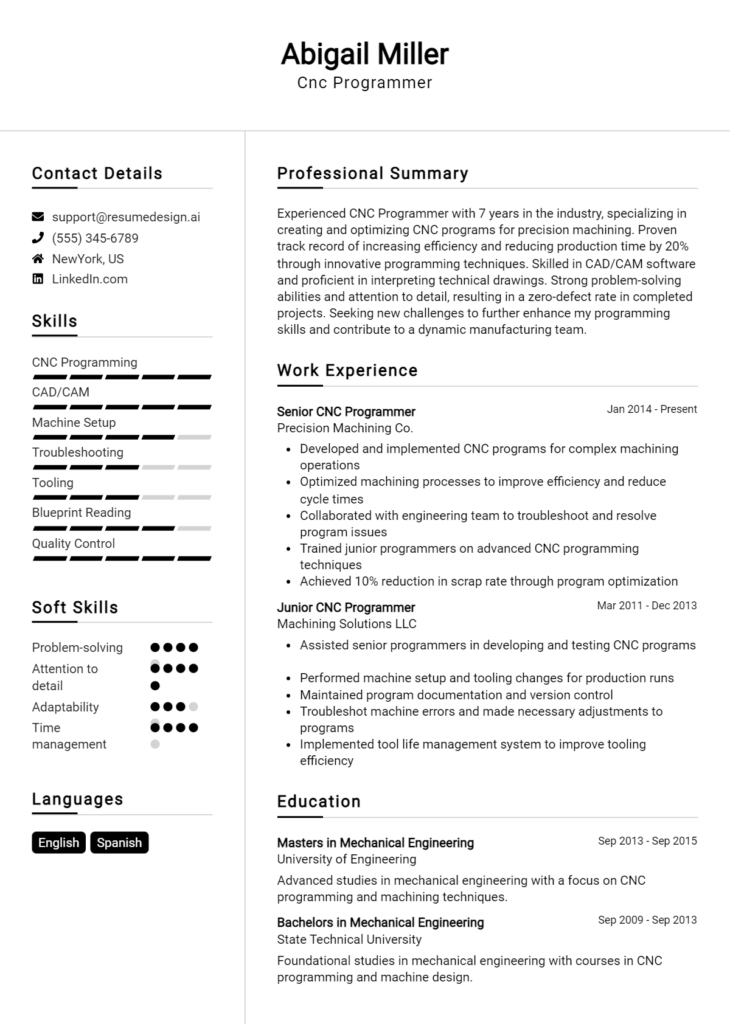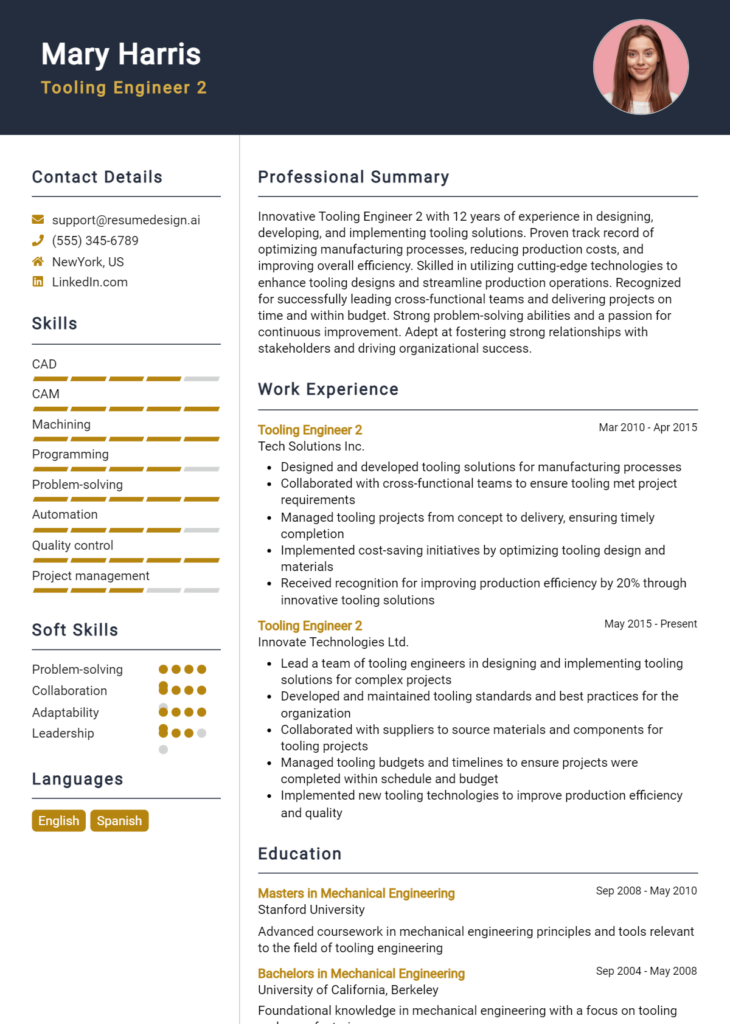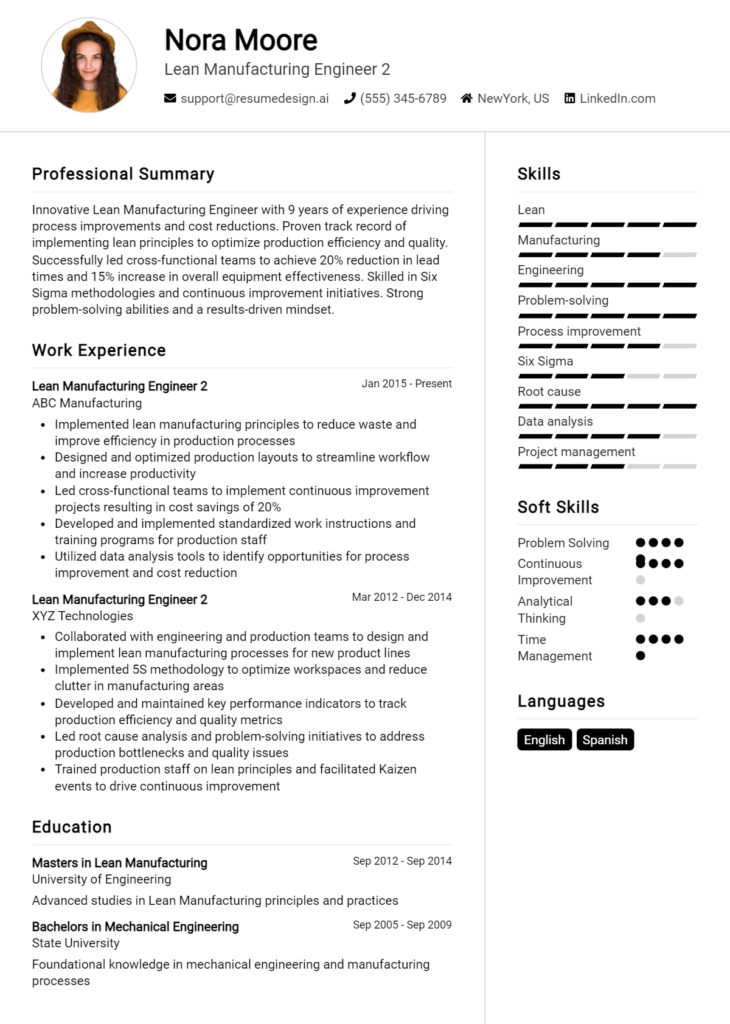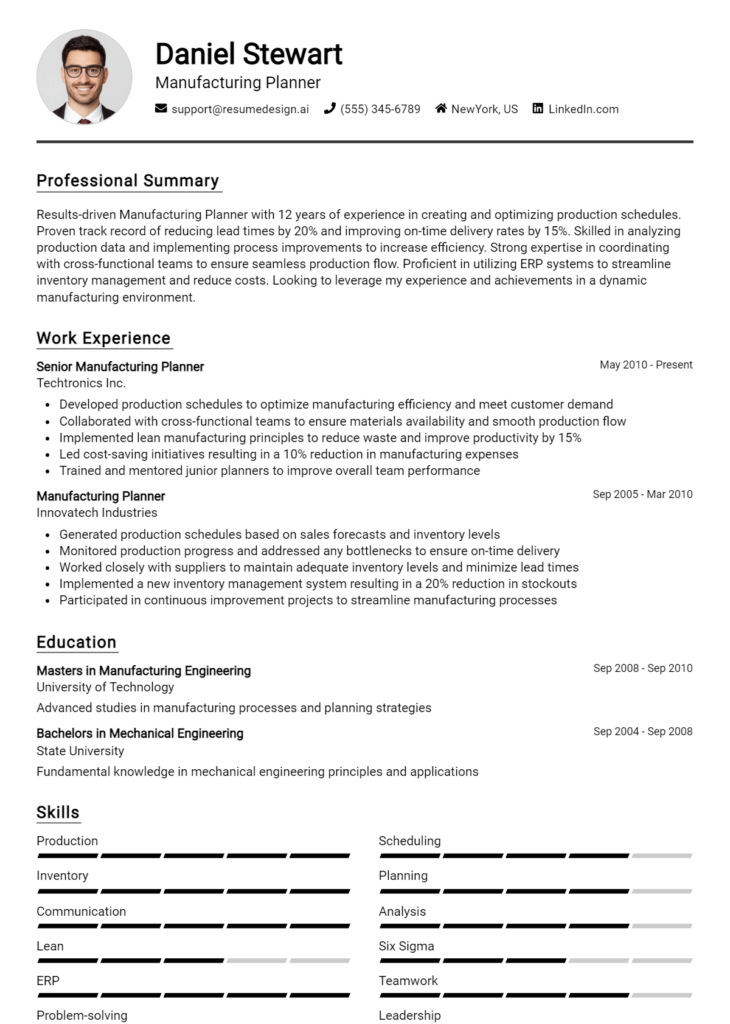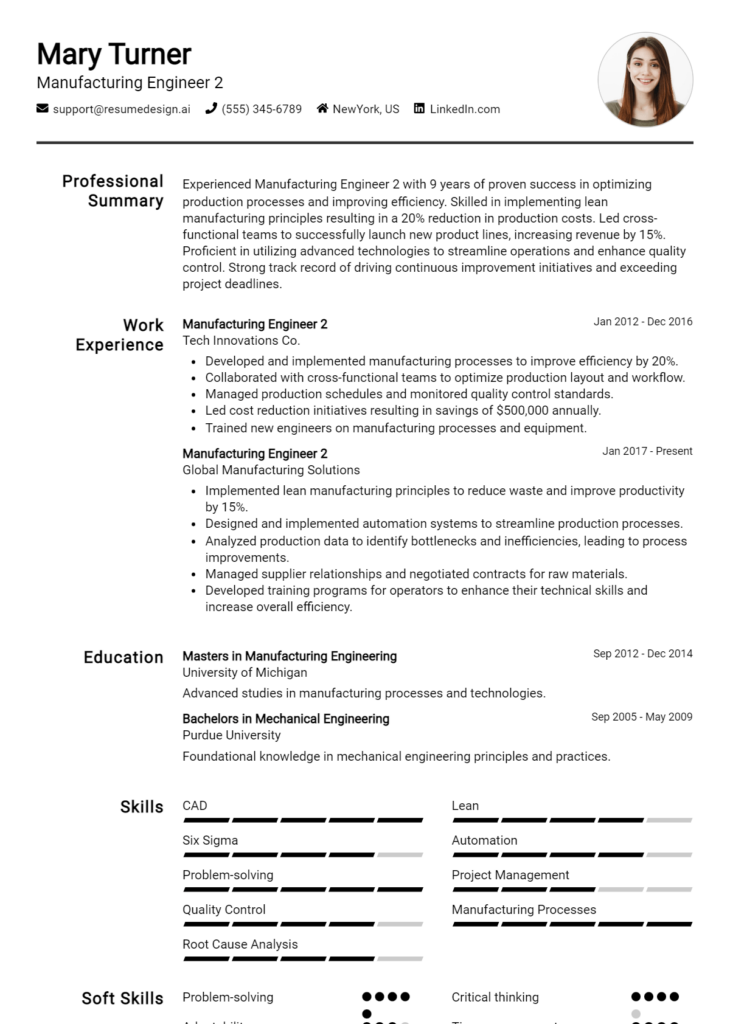Continuous Improvement Engineer Core Responsibilities
A Continuous Improvement Engineer is pivotal in enhancing operational efficiency across various departments. This role requires a blend of technical expertise, analytical skills, and problem-solving abilities to identify inefficiencies and implement effective solutions. By collaborating with teams from engineering to operations, they ensure alignment with organizational goals. Strong communication and project management skills are essential for facilitating cross-functional initiatives. A well-structured resume that highlights these competencies can effectively demonstrate a candidate's ability to drive continuous improvement.
Common Responsibilities Listed on Continuous Improvement Engineer Resume
- Analyze processes to identify areas for improvement.
- Develop and implement Lean and Six Sigma methodologies.
- Collaborate with cross-functional teams to streamline operations.
- Conduct training sessions on continuous improvement practices.
- Monitor performance metrics to assess progress.
- Facilitate root cause analysis and problem-solving workshops.
- Prepare detailed reports and presentations for stakeholders.
- Lead Kaizen events and improvement projects.
- Utilize data analysis tools to support decision-making.
- Establish best practices and standard operating procedures.
- Ensure compliance with industry standards and regulations.
- Provide support in change management initiatives.
High-Level Resume Tips for Continuous Improvement Engineer Professionals
In the competitive landscape of engineering, a well-crafted resume is crucial for Continuous Improvement Engineer professionals seeking to make a significant impact. Your resume often serves as the first impression you make on potential employers, and it is essential that it effectively reflects your skills and achievements. A resume that stands out can be the key to unlocking interviews and opportunities in this dynamic field. This guide will provide practical and actionable resume tips specifically tailored for Continuous Improvement Engineer professionals, ensuring that your qualifications shine through in every application.
Top Resume Tips for Continuous Improvement Engineer Professionals
- Tailor your resume to the job description by incorporating relevant keywords and phrases that match the requirements of the position.
- Highlight your relevant experience in continuous improvement methodologies such as Lean, Six Sigma, or Kaizen, showcasing your familiarity with industry standards.
- Quantify your achievements by using specific metrics, such as percentage improvements in efficiency, cost savings, or reduced cycle times, to demonstrate your impact.
- Include a dedicated skills section that lists both technical skills (e.g., data analysis, process mapping) and soft skills (e.g., communication, problem-solving) relevant to continuous improvement.
- Utilize bullet points to present your accomplishments clearly and concisely, making it easy for hiring managers to scan your resume quickly.
- Incorporate certifications related to continuous improvement, such as Lean Six Sigma Green Belt or Black Belt, to enhance your credibility and expertise.
- Showcase your experience with cross-functional teams and collaboration, emphasizing your ability to work effectively with diverse groups to drive improvements.
- Maintain a clean and professional layout, using consistent formatting and font styles to ensure readability and visual appeal.
- Include relevant projects or case studies that illustrate your hands-on experience and successful application of continuous improvement principles.
- Keep your resume concise, ideally one page, focusing on the most relevant information to maintain the reader's attention.
By implementing these tips, you can significantly increase your chances of landing a job in the Continuous Improvement Engineer field. A well-structured and tailored resume not only highlights your qualifications and achievements but also positions you as a strong candidate who understands the importance of continuous improvement in driving organizational success.
Why Resume Headlines & Titles are Important for Continuous Improvement Engineer
In the competitive landscape of job applications, a Continuous Improvement Engineer's resume must stand out, and one of the most effective ways to achieve this is through a compelling resume headline or title. This vital component serves as the first impression for hiring managers, summarizing a candidate's key qualifications and setting the tone for the rest of the resume. A strong headline can immediately capture attention, providing a concise and impactful overview of the candidate's expertise and relevance to the position being applied for. It is essential for this headline to be not only eye-catching but also directly related to the Continuous Improvement Engineer role, ensuring that it resonates with the specific requirements of the job.
Best Practices for Crafting Resume Headlines for Continuous Improvement Engineer
- Keep it concise: Aim for a headline that is brief yet informative, ideally under 10 words.
- Make it role-specific: Tailor the headline to reflect the specific Continuous Improvement Engineer position you are targeting.
- Highlight key skills: Incorporate relevant skills or tools, such as Lean Six Sigma or process optimization, to showcase expertise.
- Use action-oriented language: Choose powerful verbs that convey initiative and impact.
- Avoid jargon: Stay clear of overly technical terms that may not resonate with hiring managers.
- Showcase achievements: If possible, include quantifiable achievements that demonstrate your contributions to previous employers.
- Reflect your career level: Indicate your experience level, whether you are an entry-level engineer or a seasoned professional.
- Stay relevant: Ensure that your headline aligns with the responsibilities and qualifications listed in the job description.
Example Resume Headlines for Continuous Improvement Engineer
Strong Resume Headlines
"Results-Driven Continuous Improvement Engineer with Lean Six Sigma Certification"
“Dynamic Continuous Improvement Specialist Focused on Operational Excellence”
“Proven Expert in Process Optimization and Waste Reduction Strategies”
“Innovative Engineer with 5+ Years in Driving Process Improvements and Cost Savings”
Weak Resume Headlines
“Engineer Looking for Opportunities”
“Experienced Professional”
“Continuous Improvement Engineer”
The strong headlines are effective because they clearly articulate the candidate’s unique strengths and expertise while directly relating to the Continuous Improvement Engineer role. They use specific language and highlight key skills, making an immediate impact on hiring managers. In contrast, the weak headlines fail to impress due to their vagueness and lack of specificity. They do not convey any real value or differentiation, making it difficult for employers to see what the candidate brings to the table. A compelling headline is essential for capturing attention and setting the stage for a successful resume.
Writing an Exceptional Continuous Improvement Engineer Resume Summary
A well-crafted resume summary is crucial for a Continuous Improvement Engineer, as it serves as the first impression for hiring managers. This brief yet powerful section quickly captures attention by highlighting key skills, relevant experience, and significant accomplishments that align with the job role. An effective summary should be concise, impactful, and tailored specifically to the position being applied for, ensuring that the candidate stands out in a competitive job market.
Best Practices for Writing a Continuous Improvement Engineer Resume Summary
- Quantify Achievements: Use specific numbers to demonstrate the impact of your work, such as percentage improvements or cost savings.
- Focus on Key Skills: Highlight essential skills relevant to continuous improvement, such as Lean, Six Sigma, or process optimization.
- Tailor to the Job Description: Customize the summary to reflect the specific requirements and responsibilities listed in the job posting.
- Use Action-Oriented Language: Begin sentences with strong action verbs to convey confidence and proactivity.
- Showcase Relevant Experience: Briefly mention past roles and responsibilities that directly relate to continuous improvement initiatives.
- Highlight Certifications or Training: Include any relevant qualifications, such as Lean Six Sigma certifications, to add credibility.
- Keep it Concise: Limit the summary to 3-5 sentences, ensuring it is easily digestible for hiring managers.
- Emphasize Results: Focus on what you've achieved in previous roles, demonstrating your ability to drive improvements.
Example Continuous Improvement Engineer Resume Summaries
Strong Resume Summaries
Dynamic Continuous Improvement Engineer with over 7 years of experience in implementing Lean methodologies that resulted in a 30% reduction in production costs and a 25% increase in operational efficiency across multiple manufacturing plants.
Results-driven Continuous Improvement Engineer skilled in Six Sigma and process optimization, having led cross-functional teams to achieve a 40% decrease in cycle times and a 15% increase in product quality over a two-year period.
Innovative Continuous Improvement Engineer with a proven track record of driving process enhancements in a fast-paced environment. Successfully reduced waste by 20% and improved throughput by 35% through strategic project management and employee training initiatives.
Weak Resume Summaries
Experienced engineer looking for opportunities in process improvement.
Continuous Improvement Engineer with skills in various methodologies seeking a challenging position.
The strong resume summaries are effective because they provide specific, quantifiable outcomes that clearly demonstrate the candidate's impact in previous roles. They also highlight relevant skills and experiences tailored to the Continuous Improvement Engineer position. In contrast, the weak summaries lack detail, specificity, and measurable results, making them less engaging and memorable to hiring managers.
Work Experience Section for Continuous Improvement Engineer Resume
The work experience section of a Continuous Improvement Engineer resume is a critical component that highlights the candidate's technical skills, leadership abilities, and proficiency in delivering high-quality products. This section is essential for demonstrating how past roles and responsibilities align with the industry's best practices and standards. By quantifying achievements and showcasing specific examples of successful projects, candidates can effectively illustrate their impact on operational efficiency and team performance, making them more attractive to potential employers.
Best Practices for Continuous Improvement Engineer Work Experience
- Use action verbs to begin each bullet point, showcasing your role and impact clearly.
- Quantify your achievements with metrics such as percentage improvements, cost reductions, or time savings.
- Highlight collaboration with cross-functional teams to emphasize teamwork and communication skills.
- Detail specific methodologies used, such as Lean, Six Sigma, or Kaizen, to demonstrate technical expertise.
- Align your experience with industry standards and best practices to show relevance.
- Focus on results-driven outcomes, emphasizing the value you brought to previous employers.
- Include leadership experiences that demonstrate your ability to manage teams and projects effectively.
- Tailor your work experience to the job description, ensuring that relevant skills and experiences are highlighted.
Example Work Experiences for Continuous Improvement Engineer
Strong Experiences
- Led a process improvement initiative that reduced production cycle time by 30%, resulting in an annual cost savings of $250,000.
- Facilitated cross-functional teams in a Lean Six Sigma project, achieving a 20% reduction in defects and enhancing product quality by 15%.
- Implemented a new training program for team members that improved operational efficiency by 25% and decreased onboarding time by 40%.
- Managed a project team that successfully redesigned a workflow, increasing productivity by 35% while maintaining compliance with safety standards.
Weak Experiences
- Worked on process improvements in the manufacturing department.
- Assisted with team projects and helped implement changes.
- Participated in meetings to discuss operational efficiency.
- Involved in various initiatives to improve company performance.
The examples categorized as strong experiences effectively showcase quantifiable outcomes, technical leadership, and successful collaboration, providing concrete evidence of the candidate's impact. In contrast, the weak experiences lack specificity and measurable results, making them less impactful and failing to convey the candidate's true capabilities and contributions in previous roles.
Education and Certifications Section for Continuous Improvement Engineer Resume
The education and certifications section of a Continuous Improvement Engineer resume is crucial as it serves to showcase the candidate's academic foundation and their commitment to professional development. This section not only highlights degrees and relevant coursework but also emphasizes industry-recognized certifications that validate the individual's expertise in methodologies such as Lean, Six Sigma, and others. By including this information, candidates can demonstrate their knowledge of best practices and their dedication to continuous learning, which are essential traits for success in the field. A well-structured education and certifications section can significantly enhance a candidate's credibility and alignment with the job role, making them stand out to potential employers.
Best Practices for Continuous Improvement Engineer Education and Certifications
- Prioritize degrees in engineering, manufacturing, or related fields that directly relate to continuous improvement methodologies.
- Include industry-recognized certifications such as Lean Six Sigma Green Belt or Black Belt to demonstrate advanced knowledge.
- List relevant coursework that showcases expertise in statistics, quality control, process improvement, and project management.
- Highlight any specialized training programs or workshops attended that are pertinent to continuous improvement practices.
- Use specific and quantifiable achievements in education, such as GPA or honors, if they are impressive and relevant.
- Keep the section well-organized and concise, ensuring clarity and easy readability for hiring managers.
- Update this section regularly to reflect any new certifications or educational advancements.
- Consider including online courses or webinars that are relevant to current industry trends to showcase a commitment to lifelong learning.
Example Education and Certifications for Continuous Improvement Engineer
Strong Examples
- Bachelor of Science in Industrial Engineering, University of Michigan, 2020
- Lean Six Sigma Black Belt Certification, ASQ, 2022
- Certified Quality Engineer (CQE), ASQ, 2021
- Relevant coursework: Advanced Statistical Methods, Process Optimization Techniques, Quality Management Systems
Weak Examples
- Bachelor of Arts in History, University of California, 2019
- Certification in Basic Computer Skills, Online Course, 2020
- High School Diploma, 2015
- Outdated certification in ISO 9001:2008, 2018
The examples listed as "strong" reflect educational and certification backgrounds that are directly aligned with the skills and knowledge required for a Continuous Improvement Engineer. Degrees in relevant fields and recognized industry certifications demonstrate a solid foundation and commitment to continuous improvement practices. In contrast, the "weak" examples include qualifications that are either irrelevant to the role or outdated, which do not contribute positively to the candidate's profile and may raise questions about their suitability for the position.
Top Skills & Keywords for Continuous Improvement Engineer Resume
In the competitive landscape of engineering, a Continuous Improvement Engineer plays a pivotal role in enhancing processes, increasing efficiency, and driving innovation within an organization. Crafting a compelling resume that highlights relevant skills is essential for standing out to potential employers. Skills not only demonstrate a candidate's qualifications but also reflect their ability to adapt and contribute to a culture of continuous improvement. The right combination of soft and hard skills can make a significant difference in the effectiveness of a Continuous Improvement Engineer, ensuring they are well-equipped to tackle challenges and implement successful strategies.
Top Hard & Soft Skills for Continuous Improvement Engineer
Soft Skills
- Analytical thinking
- Problem-solving
- Effective communication
- Team collaboration
- Adaptability
- Attention to detail
- Project management
- Leadership
- Creativity
- Time management
- Conflict resolution
- Negotiation skills
- Critical thinking
- Interpersonal skills
- Emotional intelligence
- Process-oriented mindset
- Change management
- Customer focus
Hard Skills
- Lean manufacturing principles
- Six Sigma methodologies
- Data analysis and statistics
- Process mapping and modeling
- Quality control techniques
- Root cause analysis
- Continuous improvement tools (e.g., Kaizen, 5S)
- Project management software (e.g., MS Project, Asana)
- Statistical process control (SPC)
- ERP systems knowledge
- Value stream mapping
- ISO standards (e.g., ISO 9001)
- Workflow optimization
- Cost reduction strategies
- Technical documentation
- Risk assessment and management
- Safety regulations and compliance
- Training and development
For more insights on how to effectively showcase your skills and work experience, consider tailoring your resume to emphasize these key attributes, ensuring you align with the demands of the Continuous Improvement Engineer role.
Stand Out with a Winning Continuous Improvement Engineer Cover Letter
I am writing to express my enthusiasm for the Continuous Improvement Engineer position at [Company Name]. With a robust background in engineering and a strong commitment to enhancing operational efficiencies, I am excited about the opportunity to contribute to your team. My experience in process analysis, Lean methodologies, and Six Sigma practices has equipped me with the skills necessary to identify improvement opportunities and implement sustainable solutions that boost productivity and reduce costs.
In my previous role at [Previous Company Name], I successfully led a cross-functional team to initiate a Lean transformation project that resulted in a 20% reduction in production cycle time. By utilizing data-driven decision-making and fostering a culture of continuous improvement, we achieved significant enhancements in quality and customer satisfaction. My ability to engage stakeholders at all levels and facilitate workshops has proven instrumental in driving change and ensuring alignment with organizational goals.
I am particularly drawn to [Company Name] because of your commitment to innovation and excellence. I am eager to bring my expertise in process mapping, root cause analysis, and performance metrics to your team. I am confident that my proactive approach and analytical mindset will help streamline operations and deliver measurable results. I look forward to the possibility of discussing how I can contribute to your ongoing success in creating a culture of continuous improvement. Thank you for considering my application.
Common Mistakes to Avoid in a Continuous Improvement Engineer Resume
A well-crafted resume is essential for a Continuous Improvement Engineer seeking to stand out in a competitive job market. However, many candidates inadvertently make mistakes that can undermine their chances of landing an interview. Understanding these common pitfalls can help you present your skills and experiences more effectively. Here are some mistakes to avoid when writing your resume:
Vague Job Descriptions: Failing to provide specific details about your roles and responsibilities can make your contributions seem less impactful. Use concrete examples to illustrate your achievements.
Ignoring Quantifiable Results: Continuous improvement is all about measurable outcomes. Omitting data or metrics that showcase your successes can leave your resume lacking the necessary evidence of your capabilities.
Lack of Keywords: Many companies use applicant tracking systems (ATS) to screen resumes. Not incorporating relevant industry keywords can result in your resume being overlooked.
Too Much Technical Jargon: While it's important to demonstrate technical expertise, excessive jargon can alienate hiring managers who may not be familiar with specific terms. Aim for clarity and brevity.
Neglecting Soft Skills: Continuous Improvement Engineers often need strong interpersonal skills. Failing to highlight soft skills, such as teamwork and communication, can give an incomplete picture of your qualifications.
Inconsistent Formatting: A cluttered or inconsistent layout can make your resume difficult to read. Ensure that formatting is uniform and professional to enhance readability.
Overloading with Information: Including too much information can overwhelm the reader. Focus on the most relevant experiences and achievements that align with the job you’re applying for.
Not Tailoring for Each Application: Sending out a generic resume can be detrimental. Customize your resume for each position by aligning your skills and experiences with the specific job description.
Conclusion
As a Continuous Improvement Engineer, your role is pivotal in enhancing processes, reducing waste, and driving efficiency within an organization. Throughout this article, we explored the essential skills and qualifications required for success in this position, including expertise in Lean methodologies, Six Sigma certification, and strong analytical abilities. We also discussed the importance of effective communication and collaboration skills, as you will often work cross-functionally to implement improvements.
In today's competitive job market, having a well-crafted resume that highlights your achievements and skills is crucial. To ensure your resume stands out, take the time to review and refine it. Consider using resources such as resume templates, which can help you structure your document effectively. Additionally, a resume builder can simplify the process by allowing you to create a professional-looking resume in just a few clicks. Don't forget to check out resume examples for inspiration and tailored content that aligns with your career goals. Finally, complement your application with a polished cover letter using our cover letter templates.
Now is the time to take action! Review your Continuous Improvement Engineer resume and utilize these tools to enhance your chances of landing your dream job.

